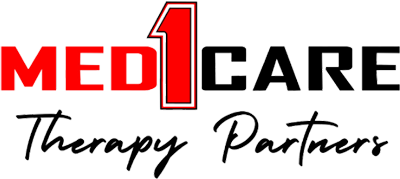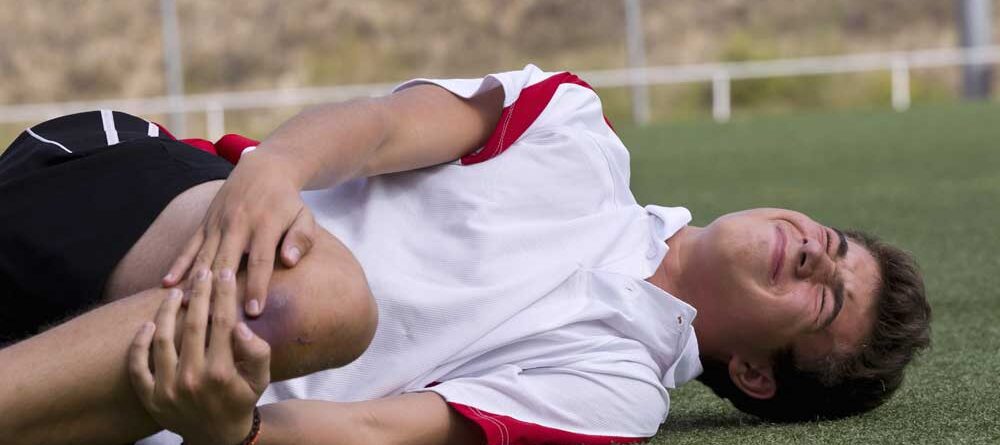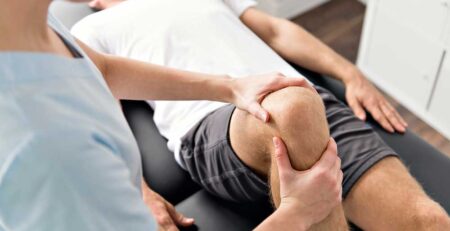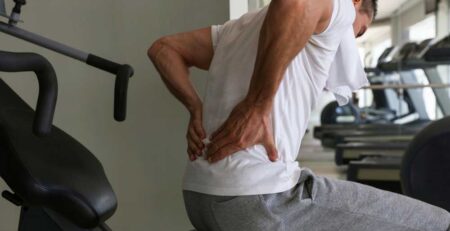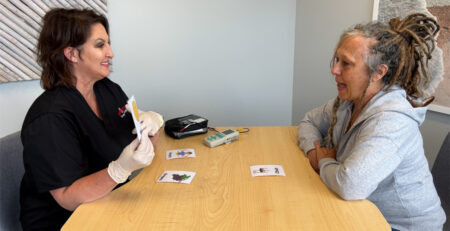6 Sports Injuries That Need Physical Therapy
People of all ages and athletic abilities can get sidelined with a sports injury. Nagging injuries and one-time accidents are the drawback of an active life. Perhaps you pulled a tendon on the golf course or strained a ligament playing tennis. Maybe you twisted your ankle simply walking in the park with your child.
Sports injuries that need physical therapy are usually caused by repetitive movements, hard impacts, sudden directional changes and overtaxed soft tissues. That fateful crack or pop, sharp or dull pain, swelling or bruising might be the first sign you exceeded your window of tolerance. By then it may be too late.
Take sports injuries seriously. Proper rest, ice and anti-inflammatories are often necessary, and if you have a serious sports injury, like one of those listed below, get yourself into physical therapy, so your current pain doesn’t permanently slow you down.
1. Ankle Sprains
Ankle sprains make up 45% of all sports injuries and may occur to as many as 23,000 Americans daily. This sports injury occurs when ankle ligaments stretch or tear as the foot exceeds its normal range of movement, typically while performing a “cutting motion” during a run, jump or directional change.
Consider physical therapy to stop the pain, avoid reinjury and restore your strength faster and more fully. Your physical therapist may take a number of approaches to reduce your pain and swelling, including hot and cold therapy, joint mobilization, ultrasound, electrical stimulation, taping, soft tissue massage and prescribed movement.
2. Bulging Discs
The spinal column is composed of thirty-three vertebrae couched between shock-absorbing discs. About 90% of bulging discs occur in the lower back when spinal wear and tear causes their soft gel-like center to sag.
A bulging disc can be the result of poor posture, sitting for long periods, sports accidents, car crashes, falls and repetitive bending, twisting or lifting. The resulting nerve pressure can radiate to other areas of the body and lead to sciatica. When exacerbated, a bulging disk may herniate. Read more.
This sports injury responds better to physical therapy than surgery. Your physical therapist may take a number of approaches to reduce the pain, tingling, numbness and weakness of bulging disks, including core strengthening, stretching, hot and cold therapy, hydrotherapy, electrical stimulation and deep tissue massage.
3. Concussion
Concussions are head injuries sustained during falls, car accidents, assaults and sporting events that require physical therapy. Symptoms of this sports injury may include balance problems, dizziness, fatigue, headache, nausea and difficulty thinking.
Evaluating whether you have a concussion is important for treatment and to reduce the risk of another concussion. A second concussion is highly likely if you return to physical activity before healing is complete. Second concussions are called “second impact syndrome.” They can result in permanent neurological damage or fatal brain swelling.
4. Runner’s Knee (Patellofemoral Pain Syndrome)
Runners, cyclists and jumpers may suffer from an injury called Runner’s Knee or Patellofemoral Pain Syndrome. This sports injury is characterized by a dull, achy pain in the front of the knee around your kneecap. It can also be caused by overuse, direct impact, foot problems, broken cartilage and weak or unbalanced thigh musculature.
If your pain does not abate after resting, icing and at home treatment, or if your pain is sharp, get physical therapy for more efficient recovery. Your individualized treatment plan may include electrical stimulation, joint mobility exercises, gentle stretching to increase plasticity, strength building and supportive posture correction to reduce the force applied to the kneecap during standing, stair climbing, squatting and jumping.
5. Torn ACL in the Knee
The ACL (Anterior Cruciate Ligaments) is a band of tissue that connects the bones above and below the knee, the femur and the tibia. If you partially or completely tore your ACL, chances are good this sports injury occurred while skiing or playing soccer, basketball or football.
Many people hear or feel their knee pop at the moment they suddenly change direction, pivot, land after a jump, stop or receive a direct blow. Some degree of swelling, pain and difficulty with weight bearing quickly follows. This is not a sports injury to treat at home. Seek immediate medical attention to assess the internal structure with the Anterior Drawer Test or a MRI.
Your physical therapist will help you manage pain and swelling (R.I.C.E: rest, ice, compression, and elevation), improve strength and mobility, safely regain control of your quadriceps and progress from walking with crutches to without assistance. Balance exercises and plyometric training may be necessary to help you regain proprioception (body awareness) and the ability to properly jump and land.
6. Shoulder Injuries (Rotator Cuff)
If you have shoulder pain, arm weakness and difficulty raising or lowering your arm, it may be due to a rotator cuff tear. This sports injury can occur from falling onto your hands, breaking your collarbone or dislocating your shoulder. Tendon degeneration can also be the product of bone spurs, reduced blood flow and overuse.
The bad news about this sports injury is that surgery is required to reattach a torn rotator cuff. The good news is surgery can be avoided for about 80% of people with a partially torn cuff, when they rest the shoulder in an arm sling, modify activities and safely strengthen and stretch their shoulder muscles in physical therapy. Recovery may take up to a year. Read more.
Select Med1Care for Your Occupational Therapy Needs
This blog addresses six common sports injuries, but many other sports injuries require physical therapy for full recovery. They may include hamstring strain, pulled groin muscles, golf elbow, tennis elbow, sciatica and shin splints complicated by stress fractures.
If you need support, our experienced physical therapists can help you eliminate the musculoskeletal discomfort you sustained with a sports injury.
We will partner with your physician to help you build a unique treatment plan to restore your movement and function with specialized exercises and education on low impact ways to manage daily living, relieve pain, improve mobility, prevent disability, strengthen the musculature and improve balance.
Call us at 419.866.0555 to schedule a free consultation.
Our specialists will help you chart a course forward.
